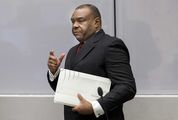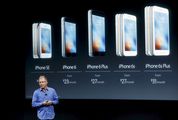Embedded fuel cell to power mobile market
by Jessica Shankleman,
2016-02-23 05:47:11.0
A BRITISH fuel cell developer that was first to put the technology harnessing the power of hydrogen into London’s black cabs says it is working on a system that would allow cellphone users to charge just once a week.
Intelligent Energy Holdings says an emerging smartphone maker will provide £5.25m to develop a fuel cell small enough to be embedded in mobile phones.
The technology converts hydrogen into electricity, leaving only water vapour as a byproduct. It is spreading quickly at a bigger scale to drive commercial power generators used by businesses including the furniture retailer Ikea and investment bank Morgan Stanley to reduce emissions and ensure electricity supply.
"Embedding fuel cell technology into portable devices provides a solution to the current dilemma of battery life," says Julian Hughes, acting MD for Intelligent Energy’s consumer electronics division.
"With consumers demanding more and more from their phones, battery innovation has not kept up.
"We have been working with the original equipment manufacturer over the recent weeks, demonstrating to them what our hydrogen fuel cell technology can achieve when embedded into a smartphone."
It is intended that the phone battery programme will build on the company’s existing prototype smartphone with an embedded fuel cell and result in the licensing of Intelligent Energy’s technology.
With smartphones using ever-increasing amounts of power as they become more sophisticated, consumers are becoming increasingly frustrated with the current limitations of battery life.
Embedding a fuel cell into the phone means consumers can have off-grid power for their phones when and where they want.
Intelligent Energy’s solution retains the smartphone’s technology, including its battery.
A fuel cell-powered phone could be on the market in two years, says CE Henri Winand. "The killer app is a battery with a seven-day refresh life and we think that will appeal to everyone. It’s not just for intrepid explorers."
Intelligent Energy, based in Loughborough in England, has been researching energy technology for more than 25 years and has more than 1,000 patents.
In addition to work on zero-emissions taxis, it worked with Boeing on the first manned aircraft powered by fuel cells.
The contract with the unnamed smartphone maker will allow Intelligent Energy to further develop a prototype fuel cellphone announced last year. It says that unit is best suited to people living without access to a power grid, such as large parts of Africa.
"With consumer power demands increasing and the advent of the Internet of Things making the world more connected than ever, now is the time to address the biggest limitation we have in achieving true connectivity — battery life," he says.
Intelligent Energy has expanded beyond hydrogen-powered transport to develop stationary back-up systems to power telecom towers in India, and last month signed a letter of intent to develop hydrogen-powered drones.
The company aims to embed its technology in mass-market applications to solve the challenges of continuous power and productivity, and to create everyday energy solutions to power lives.
"What we offer is a solution that is clean and efficient and means consumers could be truly mobile and free from the constraints of the grid," Mr Hughes says.
Bloomberg

Picture: ISTOCK
A BRITISH fuel cell developer that was first to put the technology harnessing the power of hydrogen into London’s black cabs says it is working on a system that would allow cellphone users to charge just once a week.
Intelligent Energy Holdings says an emerging smartphone maker will provide £5.25m to develop a fuel cell small enough to be embedded in mobile phones.
The technology converts hydrogen into electricity, leaving only water vapour as a byproduct. It is spreading quickly at a bigger scale to drive commercial power generators used by businesses including the furniture retailer Ikea and investment bank Morgan Stanley to reduce emissions and ensure electricity supply.
"Embedding fuel cell technology into portable devices provides a solution to the current dilemma of battery life," says Julian Hughes, acting MD for Intelligent Energy’s consumer electronics division.
"With consumers demanding more and more from their phones, battery innovation has not kept up.
"We have been working with the original equipment manufacturer over the recent weeks, demonstrating to them what our hydrogen fuel cell technology can achieve when embedded into a smartphone."
It is intended that the phone battery programme will build on the company’s existing prototype smartphone with an embedded fuel cell and result in the licensing of Intelligent Energy’s technology.
With smartphones using ever-increasing amounts of power as they become more sophisticated, consumers are becoming increasingly frustrated with the current limitations of battery life.
Embedding a fuel cell into the phone means consumers can have off-grid power for their phones when and where they want.
Intelligent Energy’s solution retains the smartphone’s technology, including its battery.
A fuel cell-powered phone could be on the market in two years, says CE Henri Winand. "The killer app is a battery with a seven-day refresh life and we think that will appeal to everyone. It’s not just for intrepid explorers."
Intelligent Energy, based in Loughborough in England, has been researching energy technology for more than 25 years and has more than 1,000 patents.
In addition to work on zero-emissions taxis, it worked with Boeing on the first manned aircraft powered by fuel cells.
The contract with the unnamed smartphone maker will allow Intelligent Energy to further develop a prototype fuel cellphone announced last year. It says that unit is best suited to people living without access to a power grid, such as large parts of Africa.
"With consumer power demands increasing and the advent of the Internet of Things making the world more connected than ever, now is the time to address the biggest limitation we have in achieving true connectivity — battery life," he says.
Intelligent Energy has expanded beyond hydrogen-powered transport to develop stationary back-up systems to power telecom towers in India, and last month signed a letter of intent to develop hydrogen-powered drones.
The company aims to embed its technology in mass-market applications to solve the challenges of continuous power and productivity, and to create everyday energy solutions to power lives.
"What we offer is a solution that is clean and efficient and means consumers could be truly mobile and free from the constraints of the grid," Mr Hughes says.
Bloomberg




















Change: 1.19%
Change: 1.36%
Change: 2.19%
Change: 1.49%
Change: -0.77%
Data supplied by Profile Data
Change: -0.08%
Change: 0.12%
Change: 1.19%
Change: 0.00%
Change: 0.10%
Data supplied by Profile Data
Change: 0.30%
Change: 0.38%
Change: 0.44%
Change: 0.30%
Change: 0.58%
Data supplied by Profile Data
Change: 0.12%
Change: -0.51%
Change: 0.00%
Change: -0.33%
Change: 0.17%
Data supplied by Profile Data